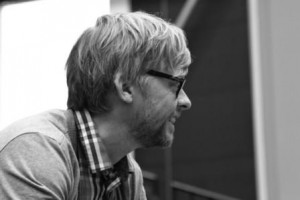 Most philosophers know how to philosophize – after all, they do it, and would not be philosophers if they didn’t. But philosophers typically do not say very much about how philosophy is to be done. Perhaps philosophical methodology – that is, explicit reflection on the methods of philosophizing – strikes most of us as being a less juicy topic than, say, consciousness or euthanasia.
Most philosophers know how to philosophize – after all, they do it, and would not be philosophers if they didn’t. But philosophers typically do not say very much about how philosophy is to be done. Perhaps philosophical methodology – that is, explicit reflection on the methods of philosophizing – strikes most of us as being a less juicy topic than, say, consciousness or euthanasia.
Some philosophers, indeed, think we shouldn’t be concerned with methodology at all. According to Gilbert Ryle, ‘preoccupation with questions about methods tends to distract us from prosecuting the methods themselves. We run, as a rule, worse, not better, if we think a lot about our feet’ (Ryle 2009: 331). Ryle seems to be suggesting that there are two reasons we ought to ignore methodological questions. First, if we get too caught up in thinking about the methods of philosophizing we will neglect to use them. Preoccupation with methodology will distract us from other, perhaps more urgent philosophical tasks. Second, Ryle alludes to a kind of centipede effect. Recall the story about the centipede that has no problem walking until it starts reflecting on how it manages to move all its legs in a co-ordinated fashion. Similarly, Ryle suggests that the more we think about how to philosophize the less we are able to just do it (as the old Nike slogan goes).
But both arguments are bad. Take the centipede argument first. Perhaps too much reflection would interfere with one’s skiing or cycling. But critical reflection is obviously central to what philosophers do when they philosophize, and it is difficult to see how too much thinking can be disruptive to one’s, well, thinking.
Second, there is no reason to think a philosopher could not make contributions to other areas of philosophy, while also occasionally addressing methodological issues. I’m living proof of this. My research is mainly on perception and social cognition, but occasionally I do dabble in philosophical methodology.
One of my recent projects has been to co-edit the Cambridge Companion to Philosophical Methodology together with Giuseppina D’Oro from Keele University. The volume aims to provide an overview of the most important positions and debates on philosophical methodology. The contributors approach the question of how to do philosophy from a wide range of perspectives, including critical theory, deconstruction, experimental philosophy, hermeneutics, Kantianism, methodological naturalism, and pragmatism. David R. Cerbone, Jean-Luc Petit, Jack Reynolds and Patrick Stokes address various aspects of the phenomenological method. Other highlights include essays on conceptual analysis by Frank Jackson, Amie Thomasson and Hans-Johann Glock, and an essay by Adrian Moore on philosophy as a kind of sense-making. The complete manuscript was submitted to the press a few weeks ago, and with a bit of luck it may come out later this year. Watch this space!
Reference:
Ryle, G. 2009. Collected Papers, Volume 2: Collected Essays 1929-1968. London: Routledge.